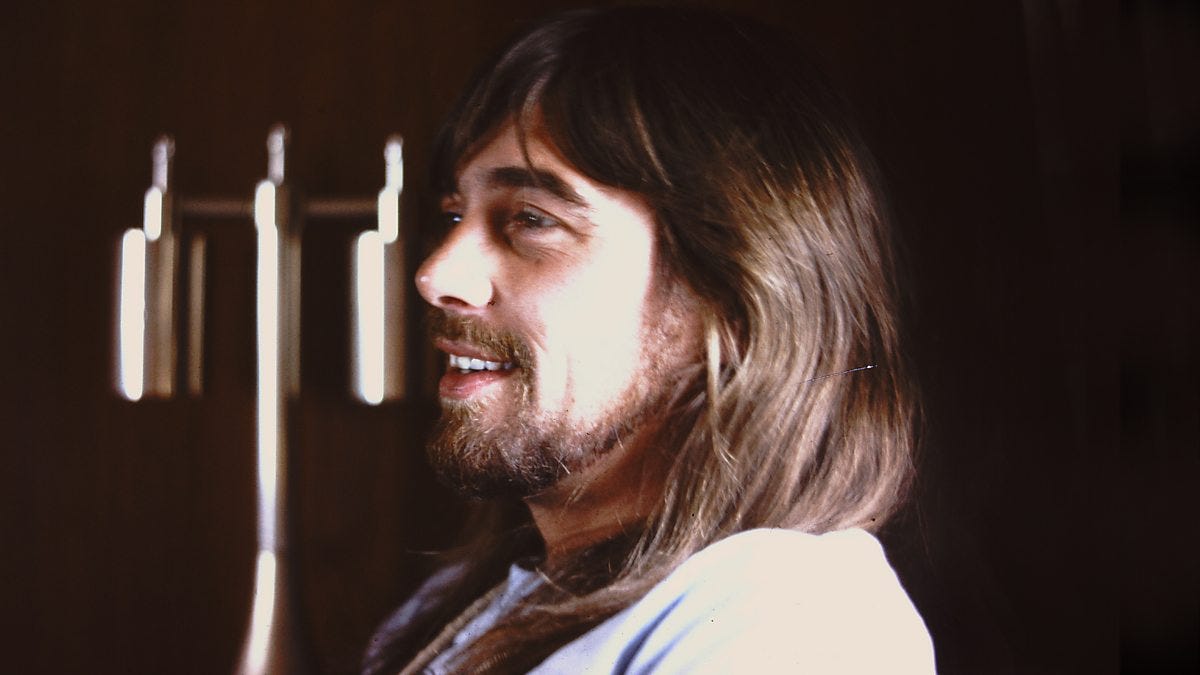Raymond "Boz" Burrell
Raymond "Boz" Burrell was an English musician whose contributions to rock music were most prominently realized through his role as the bassist and occasional vocalist for the supergroup Bad Company.
Raymond "Boz" Burrell (August 1, 1946 – September 21, 2006) was an English musician whose contributions to rock music were most prominently realized through his role as the bassist and occasional vocalist for the supergroup Bad Company. Before joining Bad Company, Burrell had a rich musical journey that saw him transitioning from a vocalist to a skilled bass guitarist, a move that would define his career and contribute significantly to the classic rock genre.
Early Career
Boz Burrell began his career in the music industry as a singer. In the mid-1960s, he was part of the band The Boz People, which offered him an initial taste of professional music performance. Despite early success, Burrell sought greater opportunities, which led him to a brief tenure with King Crimson, a band known for its progressive rock influences. Joining King Crimson in 1971, Burrell was initially brought on as a vocalist. However, due to the departure of the band's then-bassist, Robert Fripp (the guitarist and leader of King Crimson) taught Burrell to play the bass guitar. This shift from vocals to bass marked a significant turning point in Burrell's career, setting the stage for his later success with Bad Company.
King Crimson
During his time with King Crimson, Burrell contributed to the album "Islands" (1971) and participated in several tours with the band. His work with King Crimson showcased his adaptability and talent in adopting the bass guitar, providing him with valuable experience and exposure in the progressive rock scene. However, his tenure with King Crimson was relatively short-lived, as the band underwent significant lineup changes and shifts in musical direction.
Formation and Success with Bad Company
In 1973, after leaving King Crimson, Burrell was approached by Paul Rodgers and Simon Kirke, formerly of Free, and Mick Ralphs, formerly of Mott the Hoople, to form a new band that would later become known as Bad Company. Managed by Peter Grant (also Led Zeppelin's manager) and signed to Led Zeppelin's Swan Song Records, Bad Company quickly rose to fame with their self-titled debut album in 1974. The album featured hits such as "Can't Get Enough" and "Movin' On," with Burrell's bass playing providing a solid foundation for the band's blues-rock sound.
Burrell's musicianship was integral to Bad Company's success. His ability to lay down groovy, driving bass lines complemented the band's style and helped cement their place as rock legends. Throughout the 1970s and into the early 1980s, Bad Company enjoyed a series of successful albums and tours, with Burrell remaining a constant presence in the band.
Later Years and Death
After Bad Company initially disbanded in the early 1980s, Burrell continued to play music, participating in various projects and bands, though none reached the commercial heights of Bad Company. In 1999, he reunited with the original members of Bad Company for a tour, reigniting interest in the band's classic lineup.
Boz Burrell passed away suddenly on September 21, 2006, at his home in Spain. His death was a significant loss to the music world, particularly to fans of Bad Company and those who had followed his career from the beginning. Despite his passing, Burrell's legacy lives on through the timeless music of Bad Company, remembered for his essential role in one of rock's most enduring bands.
Legacy
Boz Burrell's journey from vocalist to a foundational bass player in one of the 1970s' most successful rock bands is a testament to his versatility and talent. His contributions to Bad Company's sound, characterized by his melodic bass lines and rhythmic precision, have left an indelible mark on the rock genre. Burrell's work continues to inspire bass players and musicians, cementing his place in rock history as a musician who truly understood the art of groove and melody in rock music.
